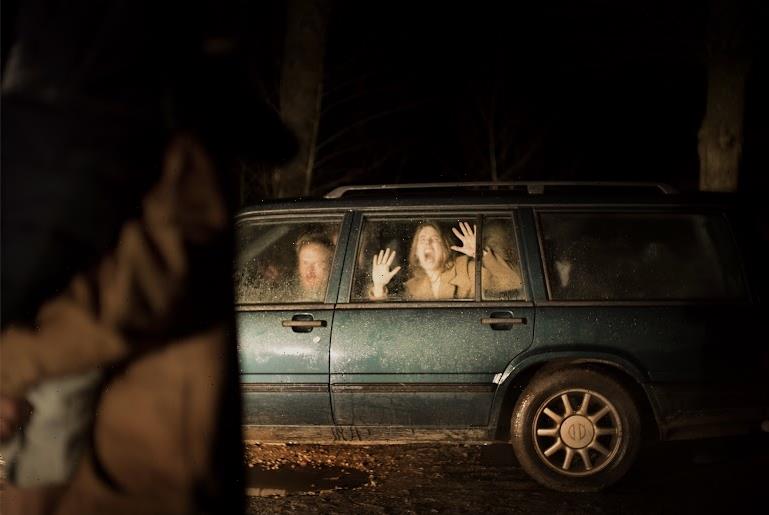The fear of seemingly harmless strangers that’s heightened during our era of online “relationships” (not to mention COVID) is cannily exploited in actor-turned-writer-director Christian Tafdrup’s “Speak No Evil.” Building on the thorny couple dynamics of his prior features “Parents” and “A Horrible Woman,” this excruciatingly slow-burn thriller has a young Danish family befriended on holiday by a Dutch clan, only to belatedly realize these new BFFs might be hazardous to their health.
Tafdrup’s squirm-inducing tale is premiering in Sundance’s Midnight section, and should find ready berth among genre fans, with strong potential for remake bids. (Distribution rights have already been secured by horror streaming service Shudder.) At the same time, its all-too-palpable cruelty will repel some viewers, in the same way such prior atypical horrors as the original “Wolf Creek” and both editions of “Funny Games” did.
A grim final destination is all the more upsetting because the over-the-top melodrama of Sune Kolst’s orchestral score, applied straightaway to a simple opening shot of a car driving down a road at night, suggests we’re in store for an outlandish black comedy. (In press materials the director does describe it as a “satirical horror movie,” something spectators may well argue with.) That expectation seems reasonable for quite a while, as Danes Louise (Sidsel Siem Koch) and Bjorn (Morten Burian) meet the Dutch pair Patrick (Fedja van Huet) and Karin (Karina Smulders) at a Tuscan resort villa. The couples are about the same age, as are their respective children, Agnes (Liva Forsberg) and the rather withdrawn Abel (Marius Damslev). By the end of their stay, the two nuclear units are spending all their time together, with Bjorn particularly drawn to uninhibited Patrick’s friendship.
Back in their sleek Copenhagen high-rise apartment, he feels more constrained than ever by the orderly life his wife prefers. Bjorn is overjoyed when the Dutch acquaintances write with an invitation to visit, claiming near-mute Abel (who was supposedly born with a foreshortened tongue) pines for his little friend Agnes. Soon the family is driving eight hours to the Netherlands’ south, where their hosts live on a remote country road. This reunion goes well enough at first, despite a few behaviors that rattle the rather judgmental Louise. After one drunken night’s excesses, however, she insists they leave immediately, without saying goodbye. This abrupt exit is rendered even more awkward when it is decided they must turn back, having left something important behind.
Even then, the shit doesn’t quite hit the fan… yet. Indeed, it takes a very long time for anything really wrong to occur in “Speak No Evil,” whose screenplay was written by Tafdrup and his brother Mads. But that doesn’t make the going any easier for viewers. The director shoots and cuts almost every scene so that the most innocuous action seems charged with the expectation that something awful is about to erupt, cranking viewer tension to an unpleasant degree. When our first fears are finally realized, cinematographer Erik Molberg Hansen’s precise compositions and other design factors only increase the discomfort by remaining coolly detached.
Many will question just what the ultimate point is, if any, and why the filmmakers felt compelled to put us through a wringer sans mercy, hope or even a cursory explanation for the evil on tap. Asked “Why are you doing this?,” one antagonist echoes the blandly amoral home-invasion villains of “Funny Games” and “The Strangers” by shrugging, “Because you let us.” Is the Tafdrups’ film an indictment of clueless bourgeois complacency, a nightmare of xenophobic paranoia or just a cynical exercise in audience abuse? The ambiguous, ambivalent tenor makes all interpretations possible, as well as equally disturbing.
While the resulting experience can’t exactly be called enjoyable, there is no denying the skill involved, particularly among the adult performers. Koch limns a somewhat controlling spouse and mother who is not particularly sympathetic — at least until we realize her instincts were right all along. Conversely, Burian’s turn really excels when Bjorn discovers, to his horror, just how wrong he’s been. Van Huet, whom art-house patrons will recall as the lead a quarter-century ago in “Character,” the Netherlands’ last international feature Oscar winner, maximizes creepiness through restraint as the figure with the largest transformational arc. If Smulders makes the least defined impression here, it actually works for the film to keep Karin remote — she’s scary because we never quite grasp what she might do, or just how crazy she is.
In addition to Kolste’s original score, there is key deployment of a Monteverdi choral chamber piece that was also prominently placed in Agnes Jaoui’s fine 2004 “Look at Me” — a movie as warmly redemptive as this one is icily ruthless.
Source: Read Full Article
